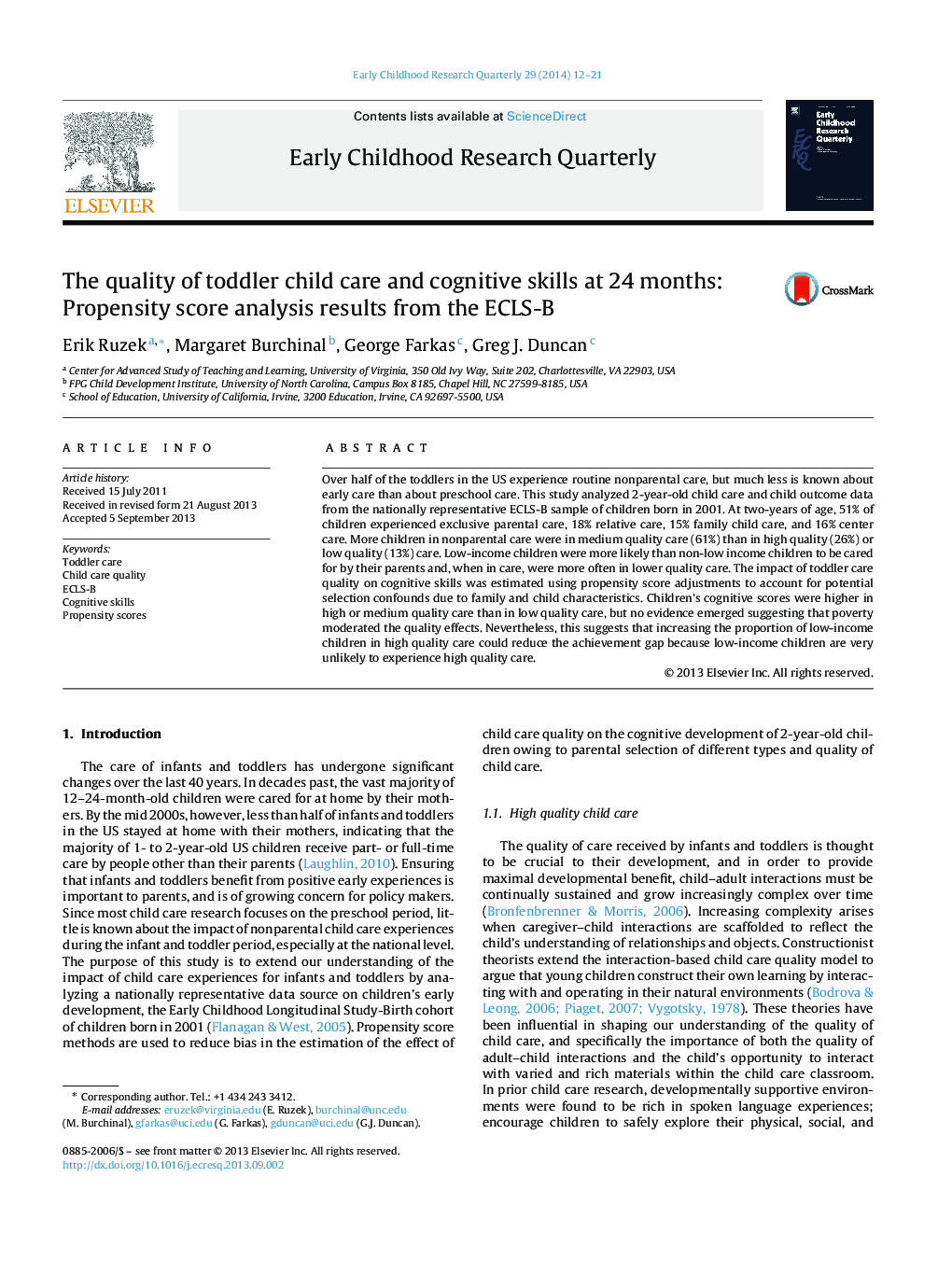| کد مقاله | کد نشریه | سال انتشار | مقاله انگلیسی | نسخه تمام متن |
|---|---|---|---|---|
| 353826 | 618947 | 2014 | 10 صفحه PDF | دانلود رایگان |
• The quantity, type, and quality of child care are reported on for US toddlers in 2003.
• Low income children were in lower quality care than non-low income children.
• Propensity score adjustment is used to account for parental selection into child care.
• Quality of child care is significantly associated with cognitive skills at 24-months.
• Increasing quality of care for low income children critical to closing cognitive skills gap.
Over half of the toddlers in the US experience routine nonparental care, but much less is known about early care than about preschool care. This study analyzed 2-year-old child care and child outcome data from the nationally representative ECLS-B sample of children born in 2001. At two-years of age, 51% of children experienced exclusive parental care, 18% relative care, 15% family child care, and 16% center care. More children in nonparental care were in medium quality care (61%) than in high quality (26%) or low quality (13%) care. Low-income children were more likely than non-low income children to be cared for by their parents and, when in care, were more often in lower quality care. The impact of toddler care quality on cognitive skills was estimated using propensity score adjustments to account for potential selection confounds due to family and child characteristics. Children's cognitive scores were higher in high or medium quality care than in low quality care, but no evidence emerged suggesting that poverty moderated the quality effects. Nevertheless, this suggests that increasing the proportion of low-income children in high quality care could reduce the achievement gap because low-income children are very unlikely to experience high quality care.
Journal: Early Childhood Research Quarterly - Volume 29, Issue 1, 1st Quarter 2014, Pages 12–21
